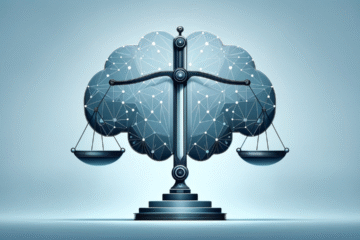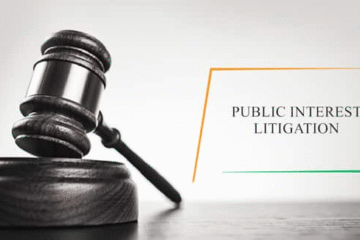
This article is written by Sudhanshi Mehrotra of LL.B of 3rd Year of Panjab University, Chandigarh
Abstract
This Article delves into the intricate landscape of freedom of speech and expression, examining it’s significance, limitations and evolving dynamics in today’s society. As a fundamental human right, freedom of speech plays a pivotal role in shaping democratic societies, fostering open discourse, fueling social progress. However, this freedom is not without challenges, as the boundaries between free expression and potential harm or offense continue to be debated. Through an analysis of historical contexts legal frameworks, and contemporary issues, this article aims to provide a comprehensive understanding of the complexities surrounding freedom of speech.
Keywords
Freedom of Speech, Expression, Article 19, Indian Constitution, Article 19(1), Object Safeguards, Constitution of India, Social Media, Hate Speech, Art, Union of India.
Introduction
We have certain basic rights as citizens of India. Fundamental rights are enshrined in the Indian constitution under Part III. These basic rights are fundamental rights that we get right from birth. No single person or state may take away the same from us. In particular, there are six fundamental rights: the right to equality (Articles 14-18), the right to freedom (Articles 19-22), the right against exploitation (Articles 23 and 24), the right to freedom of religion (Articles 25-28), educational and cultural rights (Articles 29 and 30) and the right to constitutional remedies (Article 32).
We will just take a closer look at Article 19, which deals with six fundamental freedoms. Article 19 is the most significant and important article embodying the ‘basic freedoms’ Article 19(1) of the Constitution, subject to the power of the State to enforce restrictions on the exercise of certain rights, grants those constitutional rights. Thus, the object of the Article was to protect these rights from State interference other than in the lawful exercise of its power to regulate private rights in the public interest.
Meaning of Freedom of Speech and Expression
Freedom of speech and expression has been described as the mother of all liberties .Preamble of the Constitution of India resolves to secure for the citizen of India, liberty of Thoughts, expression and belief. Article 19 (1) of the Indian Constitution says that All citizens Shall have the right
- To freedom of speech and expression;
- To assemble peaceably and without arms;
- To form associations or unions;
- To move freely throughout the territory of India;
- To reside and settle in any part of the territory of India;
- To practice any profession, or to carry on any occupation, trade or business
Article 19(1) (a) of the Constitution of India states that, all citizens shall have the right to Freedom of speech and expression. The philosophy behind this Article lies in the Preamble of the Constitution, where we solemn to secure to all its citizen, liberty of thought and expression. The Right of freedom of Speech and Expression implies that every citizen has the rights to express His views, opinions, belief, and convictions freely by mouth, writing, printing or through any Other methods. The exercise of this right is, however, subject to reasonable restrictions for Certain purposes being imposed under Article 19(2) of the Constitution of India.
The Grounds on Which This Freedom Could Be Restricted Clause (2) of Article 19 of the Indian Constitution imposes certain restrictions on free speech
Under following heads:
- Security of the State,
- Friendly relations with foreign States
- Public order,
- Decency and morality,
Object of Freedom of speech and expression
Freedom of speech not only allows people to communicate their feelings, ideas, and opinions to others, rather it serves a broader purpose1 as well. These purposes can be classified into Four:
- It help individuals in self- realization.
- Is help in discovery of truth.
- It help in the decision-making process;
- It provides a mechanism by which it would be possible to establish a reasonable balance between stability and social change.
How is Freedom of Speech important?
In a democracy like India, the concept of freedom of speech & expression opens up channels of free discussion of issues. Freedom of speech plays a very important role in the formation and the showcasing of the public opinion on social, economic & political matters throughout the country. It ensures within its scope, the freedom related to propagation and interchangement of ideas, dissemination of information which would, later on, help the formation of one’s opinion along with their viewpoint on certain issues and give rise to debates on matters which involve the public. So long as the expression is confined to nationalism, patriotism & love for our nation, the use of National flag by the way of expression of those sentiments would be a Fundamental Right.
The Independent judiciary of India has held and stated it’s an opinion that the right to receive any information is another part of the right to freedom of speech and expression and the right to communicate and receive any kind of information without any sort of interference is a crucial aspect of this right. This is because, a person cannot form an informed opinion or make an informed choice and effectively participate socially, politically or culturally without receipt of adequate information.
A print medium is a powerful tool for broadcasting any kind of information to any citizen of the nation. Thus, access to printed material is very crucial for the satisfaction of a person’s right to freedom of speech and expression guaranteed to him under the Constitution. If any failure is found on the part of the State to make legislative provision for enabling access to people having print impairment of material in alternative accessible formats would constitute a deprivation of their right to freedom of speech and expression and such an inaction on the part of the State shall fall in the wrong place of the Constitution. It is an obligation on the part of the State to make sure that sufficient provisions are made in the law which enables people with a print impairment to access printed material in accessible formats.
Under the Freedom of Speech and Expression, there is no separate guarantee of freedom of the press as it is already included in the freedom of expression, which is given to all the citizens of the nation.
Constitutional Safeguards:
In contemporary legal systems, freedom of speech and expression is typically codified in constitutional provisions. These provisions vary across jurisdictions, but they share a common commitment to protecting the right to articulate ideas without fear of censorship or reprisal. For instance, the First Amendment of the United States Constitution explicitly safeguards freedom of speech, emphasizing its critical role in a functioning democracy. Similarly, many other countries, whether through explicit constitutional provisions or judicial interpretations, recognize and protect this fundamental right.
Safeguards for Freedom of Speech and Expression under Article 19(2)
The Constitution of India guarantees freedom of speech and expression to all its citizens; however, these freedoms are not absolute because Article 19 (2) of the constitution provides a safeguard to this freedom under which reasonable restrictions can be imposed on the exercise of this right for certain purposes. Safeguards outlined are discussed below-
Article 19(2) of the Indian constitution allows the state to make laws that restrict freedom of speech and expression so long as they impose any restriction on the –
- The state’s Security such as rebellion, waging war against the State, insurrection and not ordinary breaches of public order and public safety.
- Interest id Integrity and Sovereignty of India – this was added by the 16th constitutional amendment act under the tense situation prevailing in different parts of the country. Its objective is to give appropriate powers to impose restrictions against those individuals or organizations who want to make secession from India or disintegration of India as political purposes for fighting elections.
- Contempt of court: Restriction can be imposed if the speech and expression exceed the reasonable and fair limit and amounts to contempt of court.
- Friendly relations with foreign states: It was added by the First Amendment Act, 1951 to prohibit unrestrained malicious propaganda against a foreign-friendly state. This is because it may jeopardize the maintenance of good relations between India and that state.
- Defamation or incitement to an offense: A statement, which injures the reputation of a man, amounts to defamation. Defamation consists in exposing a man to hatred, ridicule, or contempt. The civil law in relating to defamation is still uncodified in India and subject to certain exceptions.
- Decency or Morality – Article 19(2) inserts decency or morality as grounds for restricting the freedom of speech and expression. Sections 292 to 294 of the Indian Penal Code gives instances of restrictions on this freedom in the interest of decency or morality. The sections do not permit the sale or distribution or exhibition of obscene words, etc. in public places. However, the words decency or morality is very subjective and there is no strict definition for them. Also, it varies with time and place
Freedom of Speech on Social Media
The High Court of Tripura has held that posting on social media was virtually the same as a fundamental right applicable to all citizens, including government employees. It also asserted that government servants are entitled to hold and express their political beliefs, subject to the restrictions laid under the Tripura Civil Services (Conduct) Rules, 1988.
In another significant judgment, the HC of Tripura ordered the police to refrain from prosecuting the activist who was arrested over a social media post where he criticized an online campaign in support of the Citizenship Amendment Act (CAA), 2019 and warned people against it. The High Court held that these orders are in line with the very essence of the Indian Constitution
Hate Speech
The Supreme Court of India had asked the Law Commission to make recommendations to the Parliament to empower the Election Commission to restrict the problem of “hate speeches” irrespective of, whenever made. But the Law Commission recommended that several factors need to be taken into account before restricting a speech, such as the context of the speech, the status of the maker of the speech, the status of the victim and the potential of the speech to create discriminatory and disruptive circumstances.
Freedom of Speech in Art
In relation to art, the court has held that “the art must be so preponderating as to throw obscenity into a shadow or the obscenity so trivial and insignificant that it can have no effect and may be overlooked.”
There are restrictions in what can be shown in cinemas and this is governed by the Cinematograph Act, 1952.
Important Case Laws
Case: 1- People’s Union for Civil Liberties v. Union of India (AIR 1997 SC 568)
Public interest litigation (PIL) was filed under Article 32 of the Constitution of India by PUCL, against the frequent cases of telephone tapping happening throughout the nation. And thus the validity of Section 5(2) of The Indian Telegraph Act, 1885 was challenged. It was then observed that “occurrence of public emergency” and “in the interest of public safety” is the sine qua non for the application of the provisions laid down under the Section 5(2). If any of these two conditions are absent from the case, then the government of India has no right to exercise its power under this section. Telephone tapping, therefore, will be violative of Article 19(1) (a) unless it comes within the grounds of reasonable restrictions under Article 19(2).
2- Romesh Thapar v. The State of Madras (AIR 1950 SC 124).
According to the Supreme court of India, public order is very much different from law and order and security of the state. The term ‘public order’ indicates the sense of public peace, public safety and tranquility. Anything that disturbs public peace, in turn, disturbs the public. But mere criticism of the government does not disturb public order. A law which hurts the religious feelings of any class has been held to be valid and reasonable restriction aimed at maintaining the public order.
3- Bijoe Emmanuel v. State of Kerala ( 1986 3 SC 615 )
This case is also known as national anthem and freedom of Silence case. In this present case three children were expelled from the school for not singing the National anthem although they respectfully stood when the others were singing the national Anthem. They approach the H.C. of Kerala against the said order, but H.C. upheld the expulsion Valid by imposing the fundamental duty. On appeal, the Supreme Court held that the students did Not commit any offence under the Prevention of Insults to National Honour Act, 1971. Also, held That freedom of speech and expression also include the right to silence itself.
4- Kanhaiya Kumar v. State of NCT of Delhi ( AIR 2016 )
Students of Jawaharlal Nehru University organized an event on the Parliament attack convict Afzal Guru, who was hanged in 2013. The event was a protest through poetry, art, and music against the judicial killing of Afzal Guru. Allegations were made that the students in the protest were heard shouting anti-Indian Slogans. A case therefore filed against several students on charges of offence under Sections 124-A, 120-B, and 34. The University’s Students Union president Kanhaiya Kumar was arrested after Allegations of ‘anti-national’ sloganeering were made against him. Kanhaiya Kumar was released On bail by the Delhi High Court as the police investigation was still at nascent stage, and Kumar’s exact role in the protest was not clear.
Conclusion
Expressing one’s opinions through speech is one of the basic rights guaranteed by the Constitution of India and in the modern context, the right to freedom of speech and expression is not just limited to expressing one’s own views through words but it also includes the circulation of those views in terms of writing, or through audiovisuals, or through any other way of communication. This right also comprises of the right to freedom of the press, the right to information, etc. Hence it can be concluded with this article that the concept of freedom is very much essential for the proper functioning of a Democratic State.
The words “in the Interest of public order” and “reasonable restrictions” mentioned under Article 19 of the Constitution of India are used to indicate that the rights provided under this section are not absolute and they can be restricted for the safety of the other people of the nation and to maintain the public order and decency.
Disclaimer: The materials provided herein are intended solely for informational purposes. Accessing or using the site or the materials does not establish an attorney-client relationship. The information presented on this site is not to be construed as legal or professional advice, and it should not be relied upon for such purposes or used as a substitute for advice from a licensed attorney in your state. Additionally, the viewpoint presented by the author is of a personal nature.




0 Comments